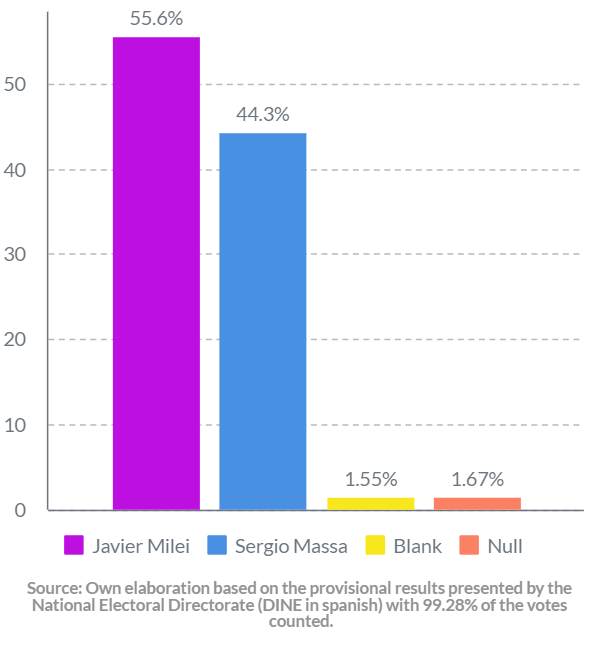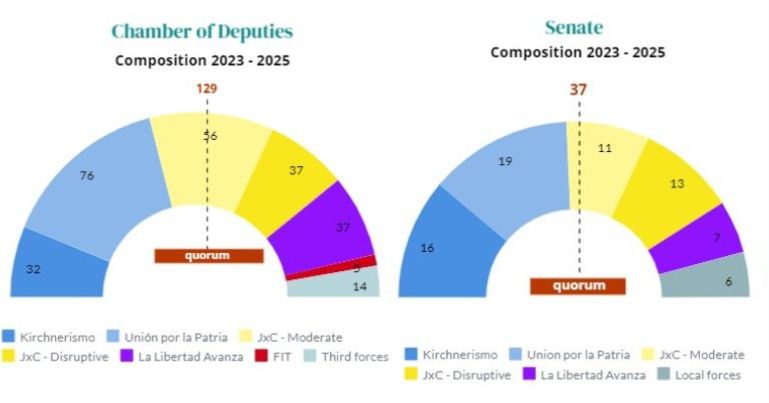Javier Milei elected president of Argentina

On Sunday, Javier Milei of La Libertad Avanza (LLA) was elected president of Argentina with 55.5% of the vote, 11 points ahead of the Peronist Minister of Economy, Sergio Massa, who obtained 44.3%. The president-elect will take office on December 10 and will rule until 2027. The rejection of the economic situation has prevailed in the electorate over the uncertainty of this new polictical force government management ability.
Now, one of the biggest challenges for the next president will be his ability to reach consensus and agreements with other political forces, in a scenario where LLA will be the third minority in both chambers of Congress, and bearing in mind that his proposals for radical reforms have been rejected by a large part of the rest of the political spectrum. During his speech, Milei warned that Argentina’s situation “is critical”, so that “the changes our country needs are drastic, there is no room for gradualism“. It is expected that in the short term, Milei will begin to confirm who will make up his cabinet.

This time Milei obtained more than 14 million votes, compared to the October elections where he had obtained around 6 million. After the result, one of the main questions was resolved: almost all the votes that Juntos por el Cambio obtained in the general elections went this time to Javier Milei.
In addition, the voter turnout was 76.3%, the same as in the general elections, although it represents 4 points less than in the 2015 run-off elections. In this line, the blank vote represented 1.55% and the null vote 1.67%, chose to cast their vote for one the two candidates.
What will the interaction with the next Congress be like?
One of the main challenges will be to reach consensus in a Congress where none of the forces has a majority of its own, and where the ruling party elected will be the third minority in both chambers. With 37 legislators in the Chamber of Deputies and 8 in the Senate, the next ruling party will necessarily have to build consensus and articulate agreements with other political forces to reach the quorum of 129 in the Lower House and 37 in the Upper House that will allow it to promote and support its government agenda.

Here it will be key to observe the behavior of the rest of the political forces. In principle, Javier Milei’s space could count on the support of the most disruptive sector of Juntos por el Cambio in both chambers, although it will not be enough to reach the necessary numbers, so it will have to enter into negotiations with more moderate sectors.
In the Senate, furthermore, the conversations with the governors will also be essential to make his agenda viable in that chamber in a scenario where Milei does not have governors of his own political space.
Challenges facing the next government
With a view to the next government, Milei will not only have to articulate agreements with other forces in Congress, but also the support of his disruptive policies will be tested in conversations to be undertaken with other sectors such as the private sector, trade unions and organized civil society.
Among his next management challenges are the control of inflation, one of the main concerns of Argentines and on which Milei has focused throughout his campaign, the negotiation with the IMF and the 2024 budget bill, as well as the promise to reduce public spending by reducing the size of the State.
